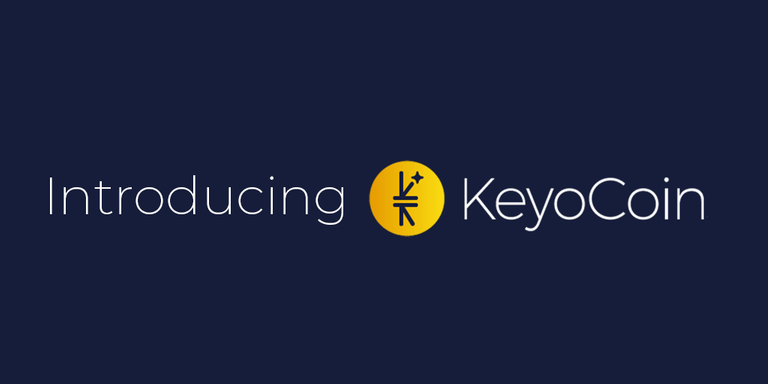If, like me, you’ve been following the cryptocurrency movement for a while now, you’re probably asking the same question I’ve been asking myself, day in day out, for the past two years. It’s a question that led me to found a company hell-bent on answering it, and one that serves as an enduring north star whenever I step back to assess the progress toward our goal.
It goes something like this:
"If blockchain technology really is going to revolutionize our world, when exactly is it going to happen?”
Now at first glance that may seem like a silly question to ask. First of all, nobody has a crystal ball, and secondly, how on earth can there be a single watershed moment for a technology as broad and manifold as blockchain is turning out to be?
Well, some might argue that we’ve already come close. 2017 saw the meteoric rise of blockchain’s most mature real-world application: Bitcoin, with a market cap that jumped from $15bn in January to $835bn by the end of the year, featuring in every major news outlet (and probably at most dinner party tables) on the way there. But even with all that international attention, it is estimated that only around 8% of the population currently own cryptocurrency, and even that, I would say, is a generous estimate.
Clearly there’s some way to go until the majority of the population, let alone the technology laggards, are using cryptocurrencies every day. But just because digital assets have so far failed to put blockchain technology in everyone’s hand, does not mean that they won’t be the catalyst that does so at some point in the future.
To work our way along the adoption curve, to the point that even our grandmothers have a reason to own and use crypto, we first need to overcome the main hurdles that are currently stopping people from dipping their toe in the water, let alone taking the plunge.

As I see it, there are three main reasons why people have yet to get involved in the crypto movement that promises to change all of our lives for the better.
The first challenge
The first is convenience. Until it’s simpler and more straightforward to pay for something in crypto than in fiat, there’s very little to motivate the vast majority of businesses or consumers from making the leap. Take one look at the oft-mentioned scalability limitations of Bitcoin, the generally slow payment processing times, the need to take full responsibility for managing your own private keys, or the relative lack of outlets that will accept it as payment, and it’s clear to see what may be putting people off.
There are of course a number of Bitcoin forks and entirely new blockchain infrastructures that are doing a great job of improving the usability of cryptocurrencies, while companies like Bitpay are making it easier than ever to spend, but tangible progress in consumer markets has been slow. For the most part, they remain complicated to purchase, exchange, and spend for the average Joe. It’s a similar story to that of electric cars, where battery limitations and a lack of charging station infrastructure has held back the spread of what is without doubt - a revolutionary technology.
The second challenge
The second challenge we must overcome is one of trust. Now I for one don’t see the crypto space as being any more susceptible to criminal activity than the traditional financial markets, but it has witnessed it’s fair share of high profile cyber security attacks in its relatively short track record, and most regulators are still ironing out how they are going to oversee the sector going forward. Again, there are some interesting parallels in the automotive industry, where the inevitable roll-out of driverless car technology on our roads has been hampered by a lack of trust in the safety protocols of the new innovation.
The third challenge
The third and final hurdle is what I’m going to call familiarity. We as humans are genetically predisposed to be wary of the unknown, especially when it comes to putting our money on the line. Of course, it is still early days for blockchain technology, and this familiarity will come in time, but unless people have a low risk means of experimenting with it, a lack of understanding is destined to turn-off large numbers of people.
Despite all of these hurdles, progress is sure to win out, as it has with so many other technologies in our history. But for that to happen sooner rather than later, we are going to need a breakaway application that proves that cryptocurrencies can be both convenient and trusted, as well as find a way to allow people to practice engaging with them at minimum risk to their personal wealth. We’re going to need an app that doesn’t just answer a market need, or fulfill a philosophical aspiration, but something that the vast majority of the population use every day because it is both useful and desirable.

I founded KeyoCoin in February 2017, because I believe that the key to helping people build familiarity with cryptocurrencies, while they are convinced of their convenience and security, is to make them free to earn and fun to use, in a place that touches everyone’s lives. It’s for that reason that I chose to create the world’s first blockchain-based universal travel rewards cryptocurrency, platform, and ecosystem that gamifies the entire travel experience.
As it happens, the rewards points used in traditional loyalty and rewards programs are in fact already a type of digital currency. They facilitate transactions among multiple parties in exchange for goods and services, and even allow for conversion to fiat currencies in rare instances. However they are also centrally managed, usually on a very small scale by a single business, and are shackled by a long list of restrictions and limitations that make them uninspiring for customers to earn, and frustrating for them to share or redeem.
Those traits however make travel rewards perfect for disruption by blockchain technology, which can free them of these limitations, increase their efficiency, security, and universality, and also make them far more economical for businesses to implement and manage on a global scale.
But crucially, by being free to earn, either as a reward for making travel related purchases, or for completing fun location-based challenges based on actions that independent travel businesses want to incentivize, they remove the financial risk people typically associate with buying cryptocurrencies. Of course you will also receive KeyoCoin for every purchase as well (there’s a 10-30% commission currently charged by online travel agents that can be immediately redistributed to consumers and their travel providers), but by completely doing away with the need to make purchases in order to earn meaningful rewards, they offer a simple and easy way for a huge number of consumers to accumulate and spend crypto, in a way that also enhances their travel adventures.
The travel, hospitality, and local experience industry is the perfect marketplace for such a rewards platform, primarily because of its size. There are over 1.3billion travelers in the world today, a number that is expected to grow to 1.8billion by 2030, collectively contributing $8.7trillion every year to the world economy, and accounting for around 10% of global GDP. As a total addressable market, it’s a goliath.
Traveling is also a time when we have some of the most unique and eye-opening experiences of our lives, and are most open to trying new things, and using social media to capture those experiences. It’s perfectly suited to a rewards platform that incentivizes people to explore more, share more, and earn tangible cryptocurrency rewards for doing so.
Of course, all of this is theoretical until it’s put into practice, which is why we’ve spent the past year and a half building the KeyoPass mobile concierge app, which is currently host to an online marketplace of over 12,000 tours, activities, and local experiences in four US markets and six Latin American countries, with hotels and more countries being added soon. This marketplace is the first application within the KeyoCoin ecosystem, which will in time be home to a suite of travel rewards based blockchain apps, and gives KeyoCoin a living breathing marketplace to launch into; not just in theory, but in real life.
The existence of the app also means that the ERC20 token (KEYO), will be one of the only Ethereum based utility tokens to have real world value upon launch. Travelers will be able to redeem accumulated KeyoCoins for accommodation, tours and activities, tip staff, or gift to friends and family heading off on trips of their own, right off the bat.
In a world where one in ten people have still yet to use the internet, there’s no denying that we face a number of hurdles on the way to reaching mass adoption of our cryptocurrency, or any for that matter, but I firmly believe that the framework we are laying out with our universal travel rewards platform is our best chance of doing so, at least in in the near term.
In little over a year, we’ve seen Bitcoin capture the world’s imagination, but fall short of capturing the world’s trust. It remains too much of an unknown for the majority to buy into and become part of their everyday routine. However, by bringing rewards to life, by bringing them to the blockchain, I hope we can finally cross that final adoption bridge once and for all.
Join the movement
www.keyocoin.com | t.me/KeyoCoin